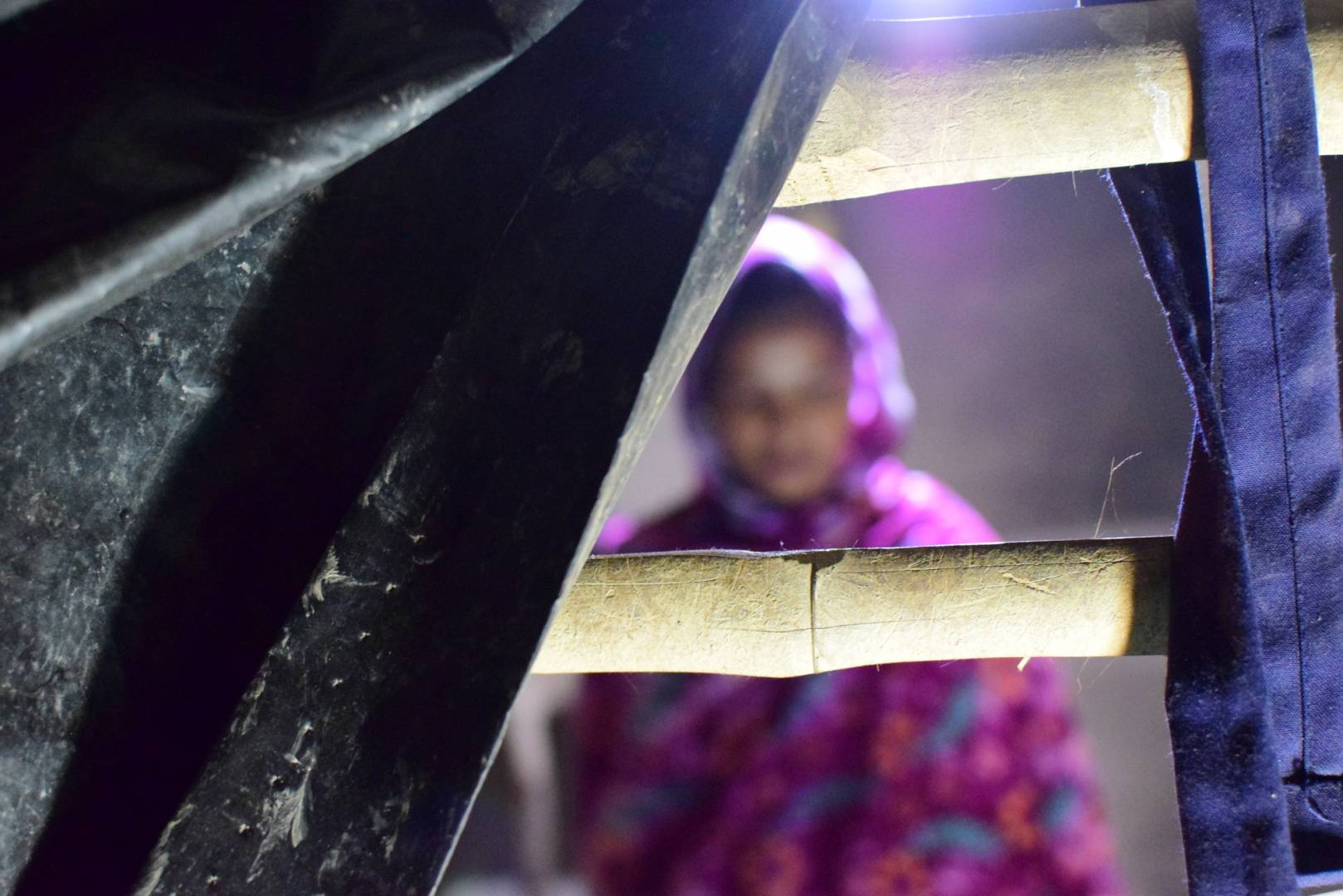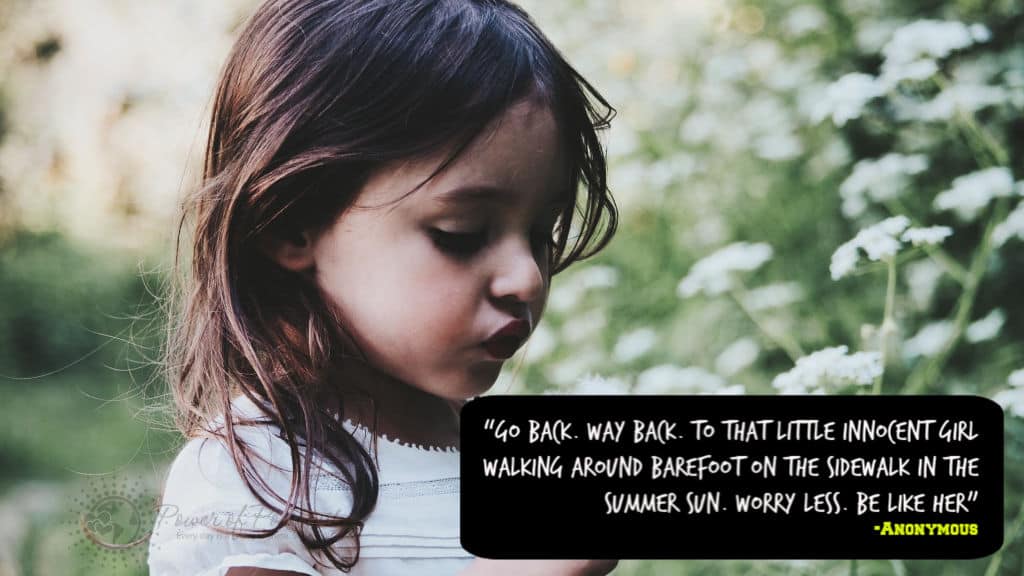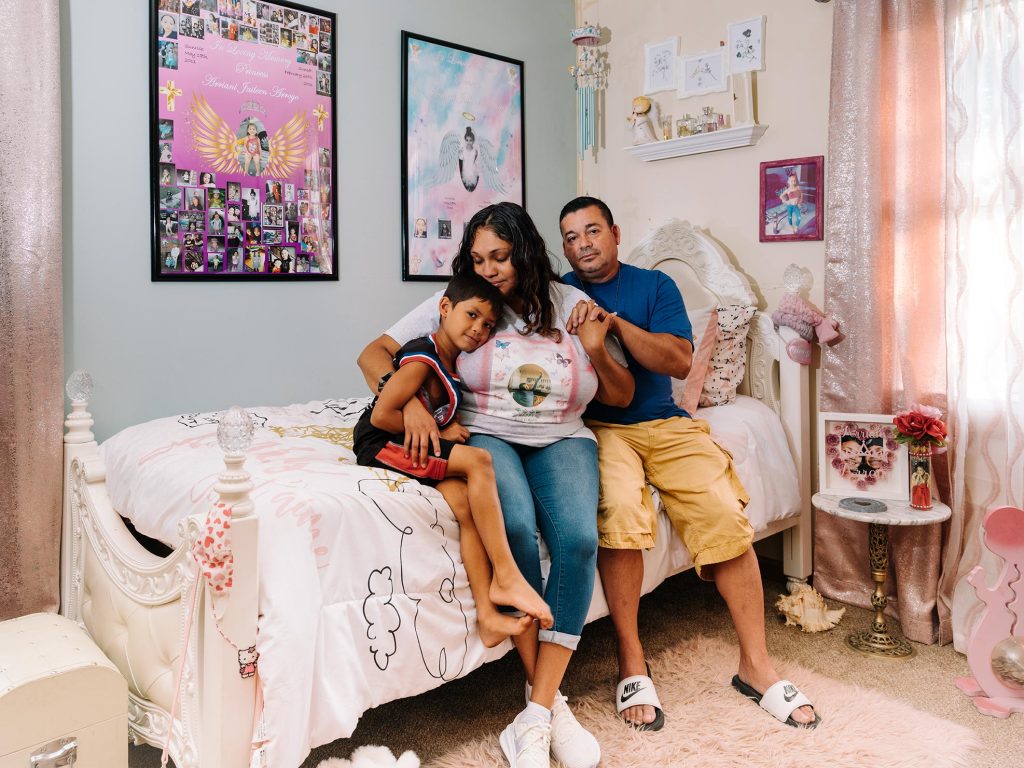To keep children away from toxic people, establish clear boundaries and prioritize your child’s well-being. Protecting your child from negative influences is crucial in ensuring their emotional and mental health as they grow.
Toxic people can have a detrimental impact on children, affecting their self-esteem, behavior, and overall development. By setting boundaries and choosing to limit or cut off contact with individuals who bring negativity into your child’s life, you are safeguarding their well-being and promoting a positive environment for them to thrive in.
It’s essential to prioritize your child’s best interests and take steps to shield them from harmful influences. By doing so, you can create a safe and healthy space for your child to grow and flourish.
Table of Contents
ToggleRecognizing Toxic People
Protect your children by setting boundaries with toxic individuals. Prioritize your child’s well-being and happiness, even if it means avoiding toxic family members. Encourage your children to stay true to themselves and not let toxic people change who they are.
Signs Of Toxic Behavior
Recognizing toxic people is essential for protecting your children from potential harm. By understanding the signs of toxic behavior, you can take proactive steps to keep your children away from these individuals. Here are some common signs to watch out for:
- Constant criticism and belittling: Toxic people often engage in a pattern of criticizing and belittling others, including children. They may make derogatory comments, undermine confidence, and constantly find fault in others.
- Manipulative behavior: Manipulation is a key characteristic of toxic individuals. They use various tactics, such as guilt-tripping, gaslighting, and emotional blackmail, to control and dominate those around them.
- Lack of empathy: Toxic people often show a lack of empathy towards others, including children. They are unable or unwilling to understand and validate others’ feelings and perspectives.
- Constant negativity: Toxic individuals have a tendency to focus on the negative aspects of life and relationships. They bring a constant atmosphere of negativity, which can be harmful to children’s emotional well-being.
- Boundary violations: Toxic people frequently ignore or disrespect personal boundaries. They may intrude into others’ personal space, disregard consent, and overstep boundaries set by parents for their children.
- Dramatic and volatile behavior: Toxic individuals often exhibit erratic and unpredictable behavior, characterized by frequent outbursts, mood swings, and intense emotional reactions.
Effects On Children
The presence of toxic people in a child’s life can have significant negative effects on their well-being and development. It is crucial to understand these effects in order to protect your children effectively:
- Emotional distress: Children who are exposed to toxic individuals may experience emotional distress, including anxiety, depression, and low self-esteem. The constant negativity and criticism can deeply impact their sense of self-worth.
- Impaired social skills: Toxic individuals can hinder a child’s social development by undermining their ability to form healthy relationships. Children may struggle with trust, empathy, and communication skills.
- Stress and trauma: Ongoing exposure to toxic behavior can result in chronic stress and even trauma for children. This can have long-term consequences on their mental and physical health.
- Negative self-image: Toxic individuals often project their own insecurities onto others, including children. This can lead to the development of negative self-image and beliefs, hindering the child’s self-confidence and personal growth.
- Behavioral issues: Children who are surrounded by toxic people may exhibit behavioral issues such as aggression, withdrawal, and defiance. They may imitate the toxic behavior they witness or struggle to express their emotions in a healthy manner.
Recognizing the signs of toxic behavior and understanding the effects it can have on children is critical for ensuring their well-being and protecting them from harm. As a parent or caregiver, it is your responsibility to create a safe and nurturing environment free from toxic influences.
Protecting Your Child
Protecting your child from toxic people is crucial for their emotional well-being. Set boundaries with relatives or individuals who exhibit harmful behavior and prioritize your child’s needs above family gatherings. It may not be easy, but creating a safe environment can lead to a happier and more liberated experience for both you and your child.
Setting Boundaries
Establish clear boundaries to protect your child from harmful influences.
Stick to these boundaries and communicate them effectively to those around you.
Putting Child First
Prioritize your child’s well-being above any familial pressures or toxic relationships.
Ensure that your child always feels loved, supported, and safe in their environment.
Avoiding Toxic Family Get-togethers
If certain family gatherings pose a risk to your child’s mental or emotional health, it’s okay to skip them.
Protect your child by creating a positive and nurturing environment away from toxic influences.
Teaching Kids To Deal With Toxic People
Teaching kids to deal with toxic people is an essential life skill that can empower them to preserve their character, avoid becoming a bully, and effectively handle bullies. As parents and educators, it’s crucial to instill the necessary tools and mindset in children to navigate toxic relationships in a healthy and constructive manner.
Preserving Character
Children should understand the importance of preserving their character when confronted with toxic individuals. Encouraging them to remain true to their values and beliefs, while staying resilient in the face of negativity, can help build their confidence and self-esteem. Teaching kids to recognize and uphold their positive traits even under challenging circumstances is key to fostering emotional resilience.
Not Becoming A Bully
It’s vital for children to grasp the concept of not becoming a bully when dealing with toxic people. Emphasizing empathy, kindness, and non-confrontational approaches can prevent them from mirroring negative behaviors. Encouraging healthy conflict resolution and communication skills will empower children to navigate difficult interactions without resorting to aggressive or hurtful conduct.
Dealing With Bullies
When children encounter bullies, it’s crucial to equip them with strategies for dealing with bullies confidently. Teaching them assertiveness, effective communication, and seeking help from trusted adults can empower them to address and manage challenging situations. Furthermore, fostering a supportive environment at home and in school can provide children with the resilience and resources needed to confront and overcome bullying behaviors.

Credit: www.reddit.com
Dealing With Toxic People Yourself
To effectively deal with toxic people, it’s important to understand how to handle them without getting emotionally drained. By following some strategies, you can maintain your mental and emotional well-being when facing toxic individuals.
Avoiding Their Reality
When interacting with toxic people, it’s crucial to avoid playing into their reality. Refrain from getting entangled in their drama and manipulative behavior. By staying grounded in your own reality, you can prevent them from affecting your mindset and emotions.
Not Getting Drawn In
One of the key strategies in dealing with toxic individuals is to avoid getting drawn into their negative energy. By setting clear boundaries, you can protect yourself from being pulled into their toxic dynamics, allowing you to maintain a sense of control and emotional stability.
Recognizing How They Make You Feel
It’s vital to pay attention to how toxic people make you feel. Acknowledging the impact of their behavior on your emotional well-being can empower you to respond effectively. By recognizing these negative effects, you can take steps to safeguard your mental and emotional health.
Establishing Boundaries
It is crucial to establish clear boundaries when dealing with toxic people, especially when it comes to protecting children. By taking control over engagement, you can determine the extent and frequency of interactions with such individuals, thereby safeguarding your child’s emotional well-being.
Protecting your child’s emotional well-being is paramount when setting boundaries with toxic individuals. Recognizing the patterns of their behavior and identifying the impact on your child’s emotional health allows you to establish clear boundaries that protect their well-being.
By maintaining control over interactions with toxic people, you can ensure that your child is shielded from potential harm. Recognizing when and where to engage with such individuals gives you the power to protect your child and uphold the boundaries you have set.

Credit: www.worldvision.org
Keeping Distance From Toxic Individuals
When it comes to the well-being of our children, it is essential to protect them from any harmful influences, including toxic individuals. Toxic people can have a negative impact on a child’s emotional and mental health, leaving lasting scars. It is our responsibility as parents to create a safe and nurturing environment for our children, free from toxicity. To achieve this, we must learn to keep our distance from toxic individuals and shield our children from their harmful effects.
Walking Away
One effective strategy in dealing with toxic individuals is to learn the art of walking away. Walking away doesn’t mean we are weak or submissive; rather, it is a brave decision to prioritize our own well-being and that of our children. Just like a hero who knows when to retreat from battle, we must recognize when to disengage from toxic people.
By consciously choosing to walk away from toxic individuals, we are setting a clear boundary between ourselves and their harmful behavior. This decision empowers us and teaches our children the importance of self-worth and self-respect. It shows them that it is okay to distance themselves from negativity and surround themselves with positive influences instead.
Feeling Nothing Around Them
Another crucial skill in dealing with toxic individuals is learning to feel nothing around them. Toxic people thrive on eliciting emotional reactions from their targets, attempting to manipulate and control their emotions. However, by mastering the art of emotional detachment, we can render their toxic behavior powerless.
When we choose not to react emotionally to the toxic behavior of others, we are creating an emotional shield that protects not only ourselves but our children as well. By modeling emotional resilience, we are equipping our children with the tools they need to navigate challenging situations with grace and composure.
Remember, our emotions are within our control, and we have the power to choose how we respond to toxic individuals. By feeling nothing around them, we are asserting our own emotional independence and preserving our mental well-being and that of our children.
In conclusion, keeping a safe distance from toxic individuals is vital for the well-being of our children. By walking away and mastering the art of emotional detachment, we can shield our children from the harmful effects of toxicity. Let us prioritize our children’s emotional and mental health by creating a loving and secure environment free from toxic influences.
Raising Children Away From Toxic Influences
As parents, our top priority is to create a safe and nurturing environment for our children to grow and thrive. This includes protecting them from toxic influences that can negatively impact their well-being. One crucial aspect of raising children away from toxic people is maintaining their innocence. By shielding them from detrimental relationships and situations, we give them the freedom to explore their world with a pure heart and a mind untainted by negativity.
Maintaining Innocence
A child’s innocence is a precious commodity that needs to be safeguarded. By keeping our children away from toxic people, we allow them to preserve their innocent outlook on life. Toxic individuals can introduce negativity, manipulation, and hurtful behaviors that can alter a child’s perception of the world. Shielding them from toxic relatives, peers, or friends gives them the chance to experience a childhood filled with positivity and love.
Building Strong Morals And Character
Children are highly impressionable, and the company they keep plays a significant role in shaping their morals and character. When children are surrounded by toxic influences, they are more likely to adopt negative traits and behaviors. However, by keeping them away from toxic people, we provide them with the opportunity to cultivate strong morals and character traits.
When children are surrounded by positive role models, they learn the value of kindness, empathy, honesty, and respect. They observe healthy relationships and develop the skills needed to navigate the world with integrity. Shielding them from toxic influences allows children to build a solid foundation of values that will guide them throughout their lives.
As parents, it is our responsibility to create a protective shield around our children, ensuring that they are shielded from toxic people and the negative impact they can have. By maintaining their innocence and building strong morals and character, we empower our children to grow into confident, compassionate individuals who can navigate life’s challenges with grace.
Recognizing The Impact On Children
- Withdrawal from activities
- Changes in behavior
- Regression in development
- Emotional trauma
- Low self-esteem
- Trust issues

Credit: www.powerofpositivity.com
Frequently Asked Questions For Keep Children Away Toxic People
How Do I Protect My Child From Toxic Relatives?
To protect your child from toxic relatives, set boundaries and prioritize your child’s well-being. Avoid family gatherings if necessary. Teach your child to preserve their character and not let toxic people change them. Don’t engage in their behavior, prioritize your own well-being, and establish clear boundaries.
Learn to walk away and shield your child from toxic influences.
How Do You Deal With Toxic People For Kids?
To deal with toxic people for kids, teach them to protect their character and not let others change them. Offer compassion but prioritize self-care. Establish boundaries to control interactions and shield emotional well-being. Walking away or setting clear limits can help keep distance from toxic individuals.
Protecting children from toxic influences is vital for their well-being and growth.
How Do You Outsmart A Toxic Person?
To outsmart a toxic person, don’t play into their reality or get drawn in. Pay attention to how they make you feel and talk to them about their behavior. Put yourself first and offer compassion without trying to fix them.
Say no and walk away, remembering it’s not your fault.
How Do You Protect Yourself From Toxic People?
Protect yourself from toxic people by setting clear boundaries to control your interactions. Recognize their behavior patterns, prioritize your well-being, and avoid being drawn into their negativity. Stand firm in upholding your boundaries and prioritize your own mental and emotional health.
Conclusion
Protect your child by setting firm boundaries with toxic individuals, prioritizing their well-being. It may be challenging, but staying strong will lead to a healthier and happier environment. Remember, your child’s safety and mental health come first. Stay vigilant and proactive in shielding them from negativity.

Mother of Two children. I’m a former teacher with a background in child development and a passion for Good parenting. I understand child development and know how to develop activities to help children learn and grow. Spare time, I enjoy spending time with my family, reading, and volunteering in my community. Read More







